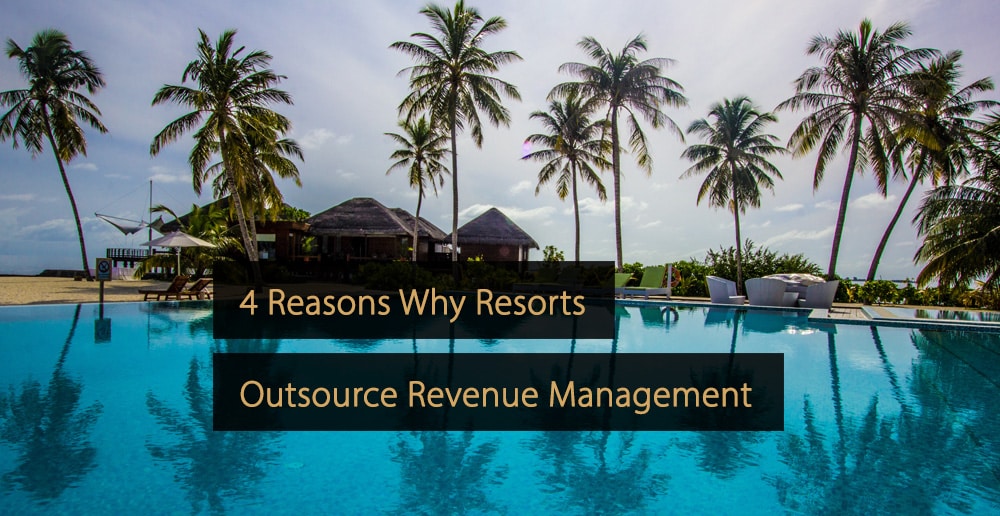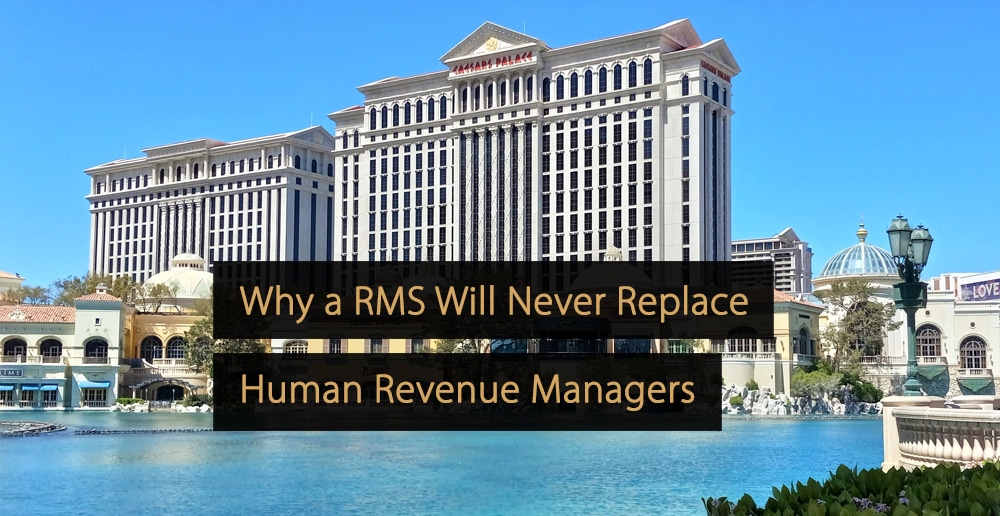For resorts, hotels, and other hospitality companies, revenue management is vital, allowing financial results to be optimized. However, many outsource revenue management to a third party rather than handling it internally, because it requires specialist knowledge and tools. In this article, you will learn more about revenue management strategies and some of the key reasons why they are often outsourced.
Defining Revenue Management
Revenue management is a strategy that maximizes financial results through data and analytics. To achieve this, information is used to predict or anticipate demand levels and then to inform pricing and distribution strategies. The standard definition for those within hospitality is as follows:
Revenue management: “Selling the right room or cottage, to the right person, at the right time, for the right price, through the right distribution channel, with the best cost efficiency.”
Understanding Revenue Management
Revenue management is an especially important concept for resorts and hotels because cottages or rooms do not all sell for the same price. Indeed, depending on when a booking is made, the date of the reservation, and the channel used to make the booking, prices can vary significantly, even when people are paying for the same room type.
Additionally, resorts and hotels have a certain number of cottages and rooms to allocate, and they cannot simply create more to meet demand. Therefore, for financial results to be optimized, they need to sell the limited number of cottages/ rooms they have for the best possible price while getting the balance right to ensure as many cottages/ rooms as possible are sold.
This means hospitality owners can gain a major advantage by accurately anticipating demand. After all, Resorts can charge higher prices when demand is high but may need to reduce prices to achieve full occupancy when demand is lower. Getting this right requires detailed data analysis.
Video: Revenue Management
Why Resorts Outsource Revenue Management
Hotel and resort owners operate in an extremely competitive industry, and revenue management has become an essential ingredient for success because it has a proven ability to improve financial results. Nevertheless, it requires a knowledge of the industry, and an understanding of quite complex techniques.
Some resorts and hotels opt to hire a full-time revenue manager who works exclusively for them. This can be a successful approach, but paying a full-time salary can be expensive, and it generally needs to be supported through investment in technology too. The alternative is outsourcing revenue management to a third party that works on demand.
The outsourcing option is especially beneficial for smaller resorts or hotels and those with a stricter budget. It allows revenue management to be carried out by experts with access to the latest technology and are equipped with up-to-date skill sets, data, and other market insights.
Moreover, resorts and hotels that outsource revenue management do not need to worry about hiring a replacement if the revenue manager leaves, or providing their revenue manager with regular training and coaching.
4 Reasons to Outsource Revenue Management
Find the four reasons to outsource revenue management for hoteliers.
1. Achieve the Best Financial Results
One of the main reasons why an increasing number of resorts and hotels are outsourcing their revenue management strategies is because it allows them to achieve better financial success. This is helped when the responsibility is outsourced to a company with industry experience and the right knowledge, expertise, and technology.
Indeed, when an experienced third party is provided with valuable data, like past sales figures, and can combine that with their industry insights, they can help resorts and hotels to adopt the right pricing strategy, and to target the right customers, through the right channels, to optimize revenue generation.
2. Focus on Sales and Customer Experience
Outsourcing revenue management offers an additional benefit: it frees owners and other resort staff to focus on other activities. This is extremely advantageous because hotel and resort owners must manage sales, marketing, housekeeping, restaurant, bar staff, and everything else.
In particular, delegating revenue management to a third party can allow for an increased focus on activities related to sales, operations, and the customer experience. This, in turn, enables resorts to enhance the quality of their products and services, improving satisfaction levels and generating loyalty.
3. Gain a Competitive Advantage
Another reason why revenue management is increasingly outsourced to third parties is that their expertise can allow resorts to become more competitive. On the most basic level, it can allow resorts to financially outperform rivals that do not have a coherent revenue management strategy.
However, the potential advantages go beyond this. For instance, it will offer efficiency advantages over resorts where the management team attempts to handle revenue management themselves.
4. Avoid the Need to Hire a Revenue Manager
Finally, in many cases, the decision to outsource revenue management can be preferable to the alternative: hiring an internal revenue manager. This is especially true for smaller, independent resorts and hotels, where the money might not be available to pay someone a full-time salary and invest in the latest tools.
Hiring a permanent revenue manager can be a time-consuming process and provides challenges if and when a revenue manager decides to leave. Training an existing staff member to become fully competent is time-consuming and expensive. Outsourcing the responsibility, on the other hand, avoids these issues completely.
Long-Term vs Short-Term Outsource Revenue Management
Explore the differences between long-term and short-term outsourcing of revenue management in the hotel industry, observing key criteria such as contract duration, cost, relationship with vendors, adaptability, technology investment, resource allocation, quality of service, risk management, and focus on core activities, aiding hotels in making strategic decisions.
| Criteria | Long-Term Outsourcing | Short-Term Outsourcing | Considerations for Decision |
|---|---|---|---|
| Contract Duration | Typically extends over several years | Generally ranges from a few months to a year | Stability vs. Flexibility |
| Cost | Often lower on a per-period basis due to long-term commitments | Potentially higher due to short-term agreements | Budget and financial planning |
| Adaptability to Change | Less flexible to change in market conditions | More adaptable and can pivot quickly | Need for agility and responsiveness |
| Investment in Technology | Higher, with customized solutions | Lower, with off-the-shelf solutions | Technological needs and innovation |
| Risk Management | Better long-term risk mitigation strategies | Short-term focus on immediate risks | Risk tolerance and long-term strategy |
| Focus on Core Activities | Allows more focus on core business over time | May require frequent oversight | Operational efficiency and management focus |
Revenue management is vital for modern resort owners because they sell a limited number of cottages or rooms for variable prices and need to maximize their financial results. However, it is becoming increasingly common for revenue management to be outsourced to third parties who specialize in the discipline, have access to the most up-to-date tools, can work on demand, and do not require the resort to provide training or coaching.
Did You Like This Article About Outsource Revenue Management?
You might also be interested in the following articles:
- Revenue Management Consulting; Benefits of Hiring a Consultant
- What Is Revenue Management?
- Reasons You Can Benefit From a Freelancer Revenue Manager
- Hotel Room Types & Room Pricing Tips for Hoteliers
- Revenue Management Trends: Discover the Latest Developments
More Tips to Grow Your Business
Revfine.com is the leading knowledge platform for the hospitality and travel industry. Professionals use our insights, strategies, and actionable tips to get inspired, optimize revenue, innovate processes, and improve customer experience.Explore expert advice on management, marketing, revenue management, operations, software, and technology in our dedicated Hotel, Hospitality, and Travel & Tourism categories.
This article is written by:
Hi, I am Martijn Barten, founder of Revfine.com. With 20 years of experience in the hospitality industry, I specialize in optimizing revenue by combining revenue management with marketing strategies. I have successfully developed, implemented, and managed revenue management and marketing strategies for individual properties and multi-property portfolios.










Leave A Comment